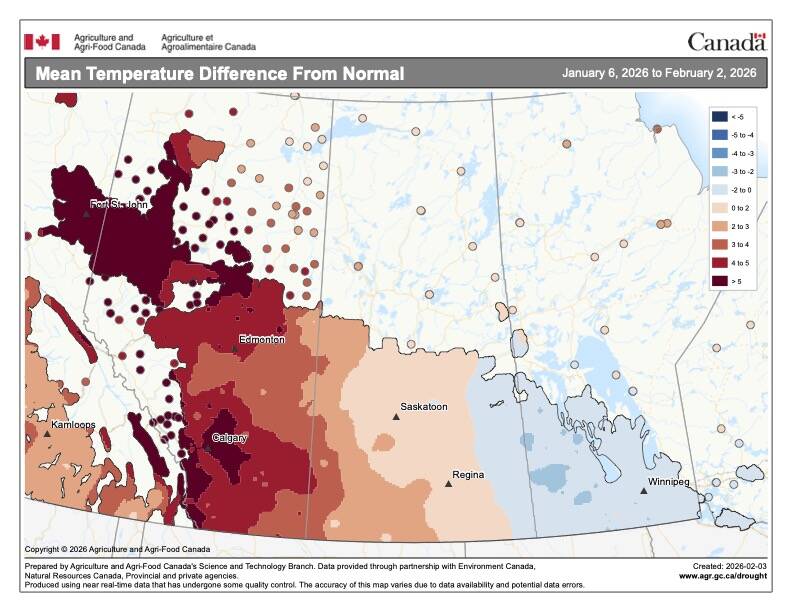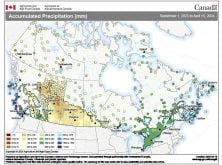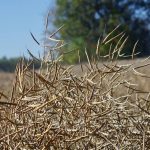Five days before Christmas, Pilot Mound residents cut the ribbon and cut the carrot cake inside their brand new, community-run theatre.
After a decade of work and community fundraising events, the volunteer board that runs the theatre was so happy to open, said Heather Brewster, a board member.
On March 19 the Tivoli Community Theatre was closed again, cancelling the showing of the Harrison Ford film “Call of the Wild” as the province plunged into lockdown. It’s still closed.
Read Also

Prairie weather all starts with the sun
The sun’s radiation comes to us in many forms, some of which are harmful to organic life while others are completely harmless or even essential, Daniel Bezte writes.
In Fisher Branch, Paul Gregory lost a good neighbour. He’d see the bereaved family around, but there was no funeral, no celebration of life to attend.
“It’s sort of like they vanished,” he said.
“Summer was lonelier than usual,” said Neil Galbraith, who farms near Minnedosa. “Everyone has a different level of what they are comfortable with for socializing and you don’t want to upset them.
“I expect winter to be worse for socializing and entertainment,” said Galbraith. “I, along with many other farmers, will miss the personal contact of winter meetings, conferences, etcetera.”
It was a long summer of adaptation. Now, as the weather turns, some may be tempted to brace for a long, lonely winter. It doesn’t need to be that way, says one expert, but a good winter may take a shift of mindset.
Three C’s of resilience

Elaine Froese is a professional speaker and farm transition coach. This year, instead of travelling to speak for three out of 12 months, Froese’s office has turned into a home studio. She’s had to learn about microphones, connectors of all kinds, and green screens. She’s also spent more time with her husband and grandchildren.
She suggested three keys to resilience this winter, drawn from a study by psychologist Nikki Gerrard.
First, communication. “Talk to each other about it. What would you like to be doing?” said Froese. “What’s your rallying cry for your family?”
Now is the time to start planning.
Froese cited a family who’s booked a winter vacation at a local resort with plans for bonfires and winter sports. She also pointed out the wide array of webinars that have popped up.
Communication can extend to more than just winter activities. Farm families need to be intentional about building the farm they want through each decade of their lives, said Froese. They need to create certainty for the next generation, and now is the time to do it.
“Just start moving in the right direction,” she said.
Second, celebration. “It’s not all or nothing,” said Froese.

Celebrations are still possible within COVID-19 safety protocols, she said. Froese recalled a recent work-related visit in which she, her husband and another couple sat, talked and ate grapes together.
“It was lovely,” she said.
She also suggested having fun rewards for successes along the way.
Third, connect — with family, friends and the community.
“People like me, what they’re really going to miss is the social component,” said Froese, who called herself an extrovert. “I keep up my social component by picking up the phone and using it as an actual phone.
“Write that down,” she added.
A phone conversation can be “virtual tea,” said Froese.
Communities are still finding ways to be together, she said. In her area, kids can still go to storytimes and art classes. A local business organized a farm equipment parade.
Monitor mental health
Now is also a good time to take stock of personal mental health and the health of loved ones.

Janet Smith is program manager at Manitoba Farm, Rural and Northern Support Services (MFRNSS), a free, call-in service that provides telephone and online counselling. In early October, she told the Co-operator 13 per cent of calls to the line over the past three months were related to COVID.
The line also received 44 calls related to suicide, said Smith.
The service recently expanded to be available 24 hours a day. Smith said she expected call volume would rise.
“People are ruminating, they can’t sleep, they’re alone, they are just feeling like that’s a time that they can reach out and talk,” she said.
She and Froese agreed that whatever pre-existing stressors or conditions farmers face, the pandemic has amplified them.
Froese said she’s seen severe mental health issues turn malicious. She’s seen and heard of more divorces.
Now is a good time to monitor mental health “tipping points” in yourself and your loved ones, Smith said.
Recognize how you’re doing and be “really in tune with yourself,” said Smith.
“Some farmers haven’t had a conversation with themselves for a very long time,” said Froese. “They are not self-aware, and they don’t have a wide range of emotional expression to express how they’re really feeling.”
Respond to these stressors before they become a full-blown crisis, said Smith. Do things that “fill your tank” and help you cope, she said.
Reach out if coping mechanisms aren’t working — to a partner, trusted friend, doctor or counsellor.
“If you don’t reach out and you’re like at that point where you’re just ready to blow, the concern is that something untoward will happen. Oftentimes people get physically ill… oftentimes people’s mental state deteriorates,” Smith said. “It’s like a bottle of Coke that’s been shook up.”
One needn’t pull the cap off and let the “Coke” spray everywhere. Letting out some of these feelings a little at a time can alleviate negativity and ruminating thoughts, she said.
















